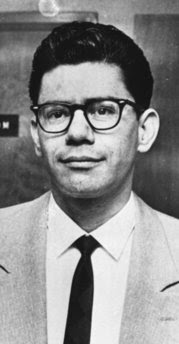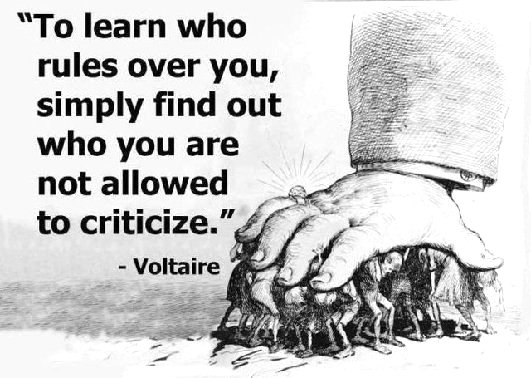Talk about F'n crazy!!!
High court trims Miranda warning rights bit by bit
By JESSE J. HOLLAND, Associated Press Writer Jesse J. Holland, Associated Press Writer – Mon Aug 2, 10:46 am ET
WASHINGTON – You have the right to remain silent, but only if you tell the police that you're remaining silent.

You have a right to a lawyer — before, during and after questioning, even though the police don't have to tell you exactly when the lawyer can be with you. If you can't afford a lawyer, one will be provided to you. Do you understand these rights as they have been read to you, which, by the way, are only good for the next two weeks?
The Supreme Court made major revisions to the now familiar Miranda warnings this year...
The court placed limits on the so-called Miranda rights three times during the just-ended session. Experts viewed the large number of rulings as a statistical aberration, rather than a full-fledged attempt to get rid of the famous 1966 decision. The original ruling emerged from police questioning of Ernesto Miranda in a rape and kidnapping case in Phoenix. It required officers to tell suspects taken into custody that they have the right to remain silent and to have a lawyer represent them, even if they can't afford one.
...
This year's Supreme Court decisions did not mandate changes in the wording of Miranda warnings read by arresting police officers. The most common version is now familiar to most Americans, thanks to television police shows: "You have the right to remain silent. Anything you say can and will be used against you in a court of law. You have the right to speak to an attorney. If you cannot afford an attorney, one will be appointed to you. Do you understand these rights as they have been read to you?"
However, the court did approve one state version of the Miranda warnings that did not specifically inform suspects that they had a right to have a lawyer present during their police questioning.
The Miranda warning used in parts of Florida told suspects: "You have the right to talk to a lawyer before answering any of our questions. If you cannot afford to hire a lawyer, one will be appointed for you without cost and before any questioning. You have the right to use any of these rights at any time you want during this interview."
...
"Nothing in the words used indicated that counsel's presence would be restricted after the questioning commenced," Ginsburg said. "Instead, the warning communicated that the right to counsel carried forward to and through the interrogation."
The next day, the court unanimously limited how long Miranda rights are valid.
***NOTE TO SELF... TREAT YOUR LAWYER LIKE THE MUTHA F'N WOOBY FROM YOUR CHILDHOOD...CRY, KICK, SCREAM, THROW A TANTRUM UNTILL YOU GET YOUR WOOBY.... THEY'RE NOT GONNA TELL YOU THAT YOU NEED A WOOBY.... BUT YOU SURE AS HELL DO!***
The high court said for the first time that a suspect's request for a lawyer is good for only 14 days after the person is released from police custody. The 9-0 ruling pulled back from an earlier decision that said that police must halt all questioning for all time if a suspect asks for a lawyer.
Police can now attempt to question a suspect who asked for a lawyer — once the person has been released from custody for at least two weeks — without violating the person's constitutional rights and without having to repeat the Miranda warning.
"In our judgment, 14 days will provide plenty of time for the suspect to get reacclimated to his normal life, to consult with friends and counsel and to shake off any residual coercive effects of his prior custody," said Justice Antonin Scalia, who wrote the majority opinion.
***IN OTHER WORDS...SHUT THE HELL UP... you're hall pass is only good for 2 weeks***
And finally, the court's conservatives used their 5-4 advantage to rule that suspects must break their silence and tell police they are going to remain quiet if they want to invoke their "right to remain silent" and stop an interrogation, just as they must tell police that they want a lawyer.
All the criminal suspect needs to say is he or she is remaining silent, wrote Justice Anthony Kennedy. "Had he made either of these simple, unambiguous statements, he would have invoked his 'right to cut off questioning.' Here he did neither, so he did not invoke his right to remain silent."
***NOW'S THE TIME TO TALK DUMBASS!... Tell them you have nothing to say.... if you have nothing to say... If you do....do... ***
But Justice Sonia Sotomayor said the majority's decision "turns Miranda upside down."
"Criminal suspects must now unambiguously invoke their right to remain silent — which counter intuitively requires them to speak," she said. "At the same time, suspects will be legally presumed to have waived their rights even if they have given no clear expression of their intent to do so."
By JESSE J. HOLLAND, Associated Press Writer Jesse J. Holland, Associated Press Writer – Mon Aug 2, 10:46 am ET
WASHINGTON – You have the right to remain silent, but only if you tell the police that you're remaining silent.

You have a right to a lawyer — before, during and after questioning, even though the police don't have to tell you exactly when the lawyer can be with you. If you can't afford a lawyer, one will be provided to you. Do you understand these rights as they have been read to you, which, by the way, are only good for the next two weeks?
The Supreme Court made major revisions to the now familiar Miranda warnings this year...
The court placed limits on the so-called Miranda rights three times during the just-ended session. Experts viewed the large number of rulings as a statistical aberration, rather than a full-fledged attempt to get rid of the famous 1966 decision. The original ruling emerged from police questioning of Ernesto Miranda in a rape and kidnapping case in Phoenix. It required officers to tell suspects taken into custody that they have the right to remain silent and to have a lawyer represent them, even if they can't afford one.
...
This year's Supreme Court decisions did not mandate changes in the wording of Miranda warnings read by arresting police officers. The most common version is now familiar to most Americans, thanks to television police shows: "You have the right to remain silent. Anything you say can and will be used against you in a court of law. You have the right to speak to an attorney. If you cannot afford an attorney, one will be appointed to you. Do you understand these rights as they have been read to you?"
However, the court did approve one state version of the Miranda warnings that did not specifically inform suspects that they had a right to have a lawyer present during their police questioning.
The Miranda warning used in parts of Florida told suspects: "You have the right to talk to a lawyer before answering any of our questions. If you cannot afford to hire a lawyer, one will be appointed for you without cost and before any questioning. You have the right to use any of these rights at any time you want during this interview."
...
"Nothing in the words used indicated that counsel's presence would be restricted after the questioning commenced," Ginsburg said. "Instead, the warning communicated that the right to counsel carried forward to and through the interrogation."
The next day, the court unanimously limited how long Miranda rights are valid.
***NOTE TO SELF... TREAT YOUR LAWYER LIKE THE MUTHA F'N WOOBY FROM YOUR CHILDHOOD...CRY, KICK, SCREAM, THROW A TANTRUM UNTILL YOU GET YOUR WOOBY.... THEY'RE NOT GONNA TELL YOU THAT YOU NEED A WOOBY.... BUT YOU SURE AS HELL DO!***
The high court said for the first time that a suspect's request for a lawyer is good for only 14 days after the person is released from police custody. The 9-0 ruling pulled back from an earlier decision that said that police must halt all questioning for all time if a suspect asks for a lawyer.
Police can now attempt to question a suspect who asked for a lawyer — once the person has been released from custody for at least two weeks — without violating the person's constitutional rights and without having to repeat the Miranda warning.
"In our judgment, 14 days will provide plenty of time for the suspect to get reacclimated to his normal life, to consult with friends and counsel and to shake off any residual coercive effects of his prior custody," said Justice Antonin Scalia, who wrote the majority opinion.
***IN OTHER WORDS...SHUT THE HELL UP... you're hall pass is only good for 2 weeks***
And finally, the court's conservatives used their 5-4 advantage to rule that suspects must break their silence and tell police they are going to remain quiet if they want to invoke their "right to remain silent" and stop an interrogation, just as they must tell police that they want a lawyer.
All the criminal suspect needs to say is he or she is remaining silent, wrote Justice Anthony Kennedy. "Had he made either of these simple, unambiguous statements, he would have invoked his 'right to cut off questioning.' Here he did neither, so he did not invoke his right to remain silent."
***NOW'S THE TIME TO TALK DUMBASS!... Tell them you have nothing to say.... if you have nothing to say... If you do....do... ***
But Justice Sonia Sotomayor said the majority's decision "turns Miranda upside down."
"Criminal suspects must now unambiguously invoke their right to remain silent — which counter intuitively requires them to speak," she said. "At the same time, suspects will be legally presumed to have waived their rights even if they have given no clear expression of their intent to do so."


Comments